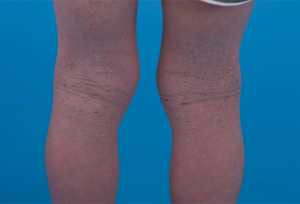19 Jan Atopic Dermatitis: Skin Microbiome Altered in Lesional and Non-Lesional Skin
MedicalResearch.com Interview with:
Maja-Lisa Clausen MD, Ph.D.-fellow
Department of Dermatology
Copenhagen University Hospital Bispebjerg
MedicalResearch.com: What is the background for this study?
Response: The human microbiome seems to play an important role in health and disease, by influencing host cells and contributing to host immunity. A balanced interplay between host cells and resident bacteria is important, and dysbiosis is linked to several diseases, including skin diseases like atopic dermatitis. Patients with atopic dermatitis suffer from frequent skin infections, and their skin microbiome is dominated by S. aureus. Frequent skin infections lead to frequent use of antibiotics, and with worldwide increase in resistant bacteria, a better understanding of the interplay between host and bacteria is paramount in order to develop new treatment strategies.
MedicalResearch.com: What are the main findings?
Response: The main findings are that the skin microbiome is altered in patients with atopic dermatitis, not only in their lesional skin, but also in non-lesional skin and the nose, suggesting a global influence of atopic dermatitis with a globally affected microbiome.
Microbiome composition was related to the presence of filaggrin gene mutations, indicating a link between host genetics and skin microbiome.
MedicalResearch.com: What should readers take away from your report?
Response: A possible link between host genetics (skin barrier function) and skin microbiome composition, further highlights the importance of a healthy skin barrier in the management of atopic dermatitis. A globally affected skin microbiome, in both non- lesional skin and nose, also highlights the role of pro-active treatment in normal appearing skin.
MedicalResearch.com: What recommendations do you have for future research as a result of this work?
Response: Studies investigating the status of homozygosity/heterozygosity in filaggrin gene mutations would be interesting.
Citations:
Clausen M, Agner T, Lilje B, Edslev SM, Johannesen TB, Andersen PS. Association of Disease Severity With Skin Microbiome and Filaggrin Gene Mutations in Adult Atopic Dermatitis. JAMA Dermatol. Published online January 17, 2018. doi:10.1001/jamadermatol.2017.5440
https://jamanetwork.com/journals/jamadermatology/fullarticle/2668143
MedicalResearch.com is not a forum for the exchange of personal medical information, advice or the promotion of self-destructive behavior (e.g., eating disorders, suicide). While you may freely discuss your troubles, you should not look to the Website for information or advice on such topics. Instead, we recommend that you talk in person with a trusted medical professional.
The information on MedicalResearch.com is provided for educational purposes only, and is in no way intended to diagnose, cure, or treat any medical or other condition. Always seek the advice of your physician or other qualified health and ask your doctor any questions you may have regarding a medical condition. In addition to all other limitations and disclaimers in this agreement, service provider and its third party providers disclaim any liability or loss in connection with the content provided on this website.
Last Updated on January 19, 2018 by Marie Benz MD FAAD

